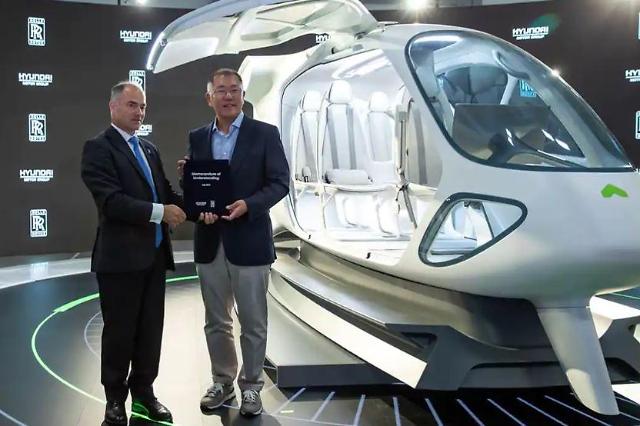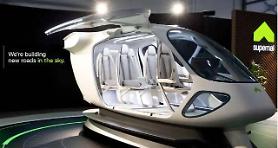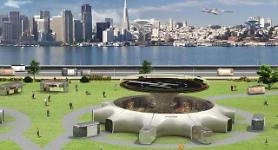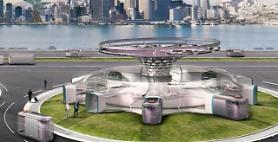
[Courtesy of Hyundai Motor Group]
SEOUL -- Rolls-Royce, a luxury automobile maker in Britain, joined hands with South Korea's Hyundai auto group to cooperate in developing all-electric propulsion and hydrogen fuel cell technology. The partnership will leverage Rolls-Royce's aviation and certification capabilities and Hyundai's hydrogen fuel cell technologies.
Rolls-Royce and Hyundai share a vision of leading the way in the advanced air mobility (AAM) market by delivering battery-electric and fuel cell electric solutions to urban air mobility (UAM) and city-to-city regional air mobility (RAM) markets. UAM is an ecosystem involving flying passenger vehicles in urban areas. AAM builds upon the UAM concept by incorporating use cases not specific to operations in urban environments.
Rolls-Royce and Hyundai signed a memorandum of understanding on the sidelines of the Farnborough International Airshow, a trade exhibition in England, in a ceremony attended by Rolls-Royce CEO Warren East and Hyundai Motor Group's executive chair Chung Eui-sun.
"We are pleased to partner with Rolls-Royce to draw upon their aviation and certification expertise to accelerate the development of hydrogen fuel-cell propulsion systems," Shin Jai-won, head of Hyundai's AAM division, said in a statement on July 19.
Hyundai said that the benefit of using a hydrogen fuel cell system in an all-electric aircraft propulsion system is a zero-emission, silent and reliable onboard power source that enables scalability in power offerings as well as a long-distance flight range.
Hyundai and Rolls-Royce will work to bring hydrogen fuel cells, storage systems and infrastructure to the aerospace markets, and advance developed technologies into Hyundai’s RAM vehicles and Rolls-Royce's all-electric and hybrid-electric propulsion system offerings.
The agreement includes five strategic aims -- collaboration on the technology development and requirements of power and propulsion systems for Hyundai's AAM division, and the industrialization of Rolls-Royce power and propulsion systems for the AAM market.
They would try to develop electric propulsion systems based on hydrogen fuel cells as an energy source for Hyundai’s RAM platforms, collaborate to develop a joint fuel-cell electric propulsion system to a wider AAM market, and demonstrate a joint fuel-cell electric aircraft by 2025.
Copyright ⓒ Aju Press All rights reserved.




